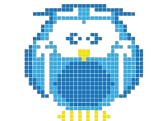Over the last thirty years we have seen a huge shift in gaming culture. Previously, gaming was a niche hobby that was often mocked and seen as ‘Nerdy.’ But, as technology improved, gaming became increasingly popular. Today gaming is one of the most popular hobbies on the planet. It is a multi-billion dollar industry, as demonstrated by Microsoft buying Blizzard Activision for a whopping $69 Billion Dollars.
Many people have often dreamed about working in the gaming industry. And it can often seem like an inaccessible dream. But, with gaming only growing in popularity, now is actually the perfect time to try to break into the industry. But where does one start on their journey to become a game designer? We have put together this guide to help you take your first steps.
Find Your Field
Being a game designer can mean any number of things. As you most likely know it takes a dedicated team of people to make a game. Programmers, writers, artists, testers, producers. There are many different fields one can work in with game design. So the first step is figuring out what contribution you want to be making to your team.
Naturally, there will be an area you gravitate towards more than others. Maybe you already have an inclination towards creating art. Or perhaps you spend your free time creating complex stories. Or maybe you studied programming at school. But, you might also consider training in a few different fields to better your chances of finding a job.
Immerse Yourself In Gaming
I have no doubt that, if you are reading this article, you are already an avid gamer. But, as with any creative craft, you can’t be successful without consuming the media you want to make. A writer needs to read a lot of books. A director needs to study a lot of films. And a game designer needs to study games. And that means more than just playing them.
If you want to become a game designer you need to start studying the games you play with a designer’s eyes. Let’s take Minecraft as an example. On the surface, Minecraft is a game with a simple, yet effective, game loop. You break blocks. Use those blocks to build. Get better equipment. Break more blocks. Explore. It is simple enough that someone who has never played a game before can play it with ease. But deep enough that a serious gamer can sink their teeth into it.
But how does it achieve this? This is the primary question you should ask as a game designer. From there you will want to deconstruct everything about it. How intuitive are the controls when considering the gameplay loop? Do the graphics fit the feeling the gameplay creates? Is the sound design immersive? Make sure you write down your observations to get into the habit of thinking like a designer.
You will also want to engage with the games community, especially if it has multiplayer functionality. Just by looking at this survival Minecraft server list, you can get a good idea of how people engage with the game in the multiplayer community. Make a note of which modes are most popular. Does the community prefer modding capabilities? Do they want more control over their multiplayer experience?
Learn Programming
Even if you aren’t looking to become a game programmer it is still a good idea to have a basic understanding of how programming works. This will allow you to better understand what goes into coding a game. And will let you know what is possible, and what isn’t.
There are hundreds of fantastic courses out there to help you get started. Boot.Dev is a great example. It turns programming lessons into an RPG. You gain experience for completing lessons and earn new powers.
If you are really serious about becoming a game programmer, you might consider enrolling in a University or College course for game programming. This will not only teach you the skills you need, but will allow you to network with other game designers and game design companies. Plus, it will look great on your CV when you finally start applying to different companies.
Play Board Games
When you are designing a game there is always one key question you need to ask. And that is ‘Why isn’t this a board game?’ This philosophy is pivotal to the world of gaming. Board games were the precursor to video games. They are baked into the DNA of video games.
So to become a better game designer you should take some time to immerse yourself in the world of board games. Because they will teach you a lot about the fundamentals of both game design and game theory as a whole.
Board Games are a complex beast. They need to be perfectly balanced to ensure all players are having fun, but also have an equal chance at winning. They need to have rules that prepare for any situation that may arise within the bounds of the game. And they need to be replayable. This might all sound simple, but the reality is far from it.
We recommend you try a huge variety of board games. Take rigorous notes, much like how you studied video games. And then try your hand at making your own board game. You’ll be surprised at what you learn from the experience.



